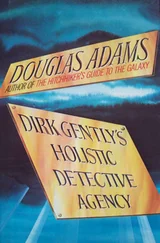Allan Pinkerton
The Greatest Cases of Pinkerton Detective Agency
Published by

Books
- Advanced Digital Solutions & High-Quality eBook Formatting -
musaicumbooks@okpublishing.info
2018 OK Publishing
ISBN 978-80-272-4622-9
The Expressman and the Detective
The Somnambulist and the Detective
The Murderer and the Fortune Teller
The Spiritualists and the Detectives
Mississippi Outlaws and the Detectives
Don Pedro and the Detectives
Poisoner and the Detectives
Bucholz and the Detectives
The Burglar's Fate and the Detectives
The Expressman and the Detective
Table of Contents
PREFACE.
CHAPTER I.
CHAPTER II.
CHAPTER III.
CHAPTER IV.
CHAPTER V.
CHAPTER VI.
CHAPTER VII.
CHAPTER VIII.
CHAPTER IX.
CHAPTER X.
CHAPTER XI.
CHAPTER XII.
CHAPTER XIII.
CHAPTER XIV.
CHAPTER XV.
CHAPTER XVI.
CHAPTER XVII.
CHAPTER XVIII.
CHAPTER XIX.
CHAPTER XX.
CHAPTER XXI.
CHAPTER XXII.
CHAPTER XXIII.
CHAPTER XXIV.
CHAPTER XXV.
CHAPTER XXVI.
CHAPTER XXVII.
CHAPTER XXVIII.
CHAPTER XXIX.
CHAPTER XXX.
Table of Contents
During the greater portion of a very busy life, I have been actively engaged in the profession of a Detective, and hence have been brought in contact with many men, and have been an interested participant in many exciting occurrences.
The narration of some of the most interesting of these events, happening in connection with my professional labors, is the realization of a pleasure I have long anticipated, and is the fulfillment of promises repeatedly made to numerous friends in by gone days.
"The Expressman and the Detective,"
and the other works announced by my publishers, are all true stories , transcribed from the Records in my offices. If there be any incidental embellishment, it is so slight that the actors in these scenes from the drama of life would never themselves detect it; and if the incidents seem to the reader at all marvelous or improbable, I can but remind him, in the words of the old adage, that "Truth is stranger than fiction."
ALLAN PINKERTON.
Chicago, October, 1874.
Table of Contents
Montgomery, Alabama, is beautifully situated on the Alabama river, near the centre of the State. Its situation at the head of navigation, on the Alabama river, its connection by rail with important points, and the rich agricultural country with which it is surrounded, make it a great commercial centre, and the second city in the State as regards wealth and population. It is the capital, and consequently learned men and great politicians flock to it, giving it a society of the highest rank, and making it the social centre of the State.
From 1858 to 1860, the time of which I treat in the present work, the South was in a most prosperous condition. "Cotton was king," and millions of dollars were poured into the country for its purchase, and a fair share of this money found its way to Montgomery.
When the Alabama planters had gathered their crops of cotton, tobacco, rice, etc., they sent them to Montgomery to be sold, and placed the proceeds on deposit in its banks. During their busy season, while overseeing the labor of their slaves, they were almost entirely debarred from the society of any but their own families; but when the crops were gathered they went with their families to Montgomery, where they gave themselves up to enjoyment, spending their money in a most lavish manner.
There were several good hotels in the city and they were always filled to overflowing with the wealth and beauty of the South.
The Adams Express Company had a monopoly of the express business of the South, and had established its agencies at all points with which there was communication by rail, steam or stage. They handled all the money sent to the South for the purchase of produce, or remitted to the North in payment of merchandise. Moreover, as they did all the express business for the banks, besides moving an immense amount of freight, it is evident that their business was enormous.
At all points of importance, where there were diverging routes of communication, the company had established principal agencies, at which all through freight and the money pouches were delivered by the messengers. The agents at these points were selected with the greatest care, and were always considered men above reproach. Montgomery being a great centre of trade was made the western terminus of one of the express routes, Atlanta being the eastern. The messengers who had charge of the express matter between these two points were each provided with a safe and with a pouch. The latter was to contain only such packages as were to go over the whole route, consisting of money or other valuables. The messenger was not furnished with a key to the pouch, but it was handed to him locked by the agent at one end of the route to be delivered in the same condition to the agent at the other end.
The safe was intended for way packages, and of it the messenger of course had a key. The pouch was carried in the safe, each being protected by a lock of peculiar construction.
The Montgomery office in 1858, and for some years previous, had been in charge of Nathan Maroney, and he had made himself one of the most popular agents in the company's employ.
He was married, and with his wife and one daughter, had pleasant quarters at the Exchange Hotel, one of the best houses in the city. He possessed all the qualifications which make a popular man. He had a genial, hearty manner, which endeared him to the open, hospitable inhabitants of Montgomery, so that he was "hail fellow, well met," with most of its populace. He possessed great executive ability and hence managed the affairs of his office in a very satisfactory manner. The promptness with which he discharged his duties had won for him the well-merited esteem of the officers of the company, and he was in a fair way of attaining a still higher position. His greatest weakness—if it may be so called—was a love for fast horses, which often threw him into the company of betting men.
On the morning of the twenty-sixth of April, 1858, the messenger from Atlanta arrived in Montgomery, placed his safe in the office as usual, and when Maroney came in, turned over to him the through pouch.
Maroney unlocked the pouch and compared it with the way-bill, when he discovered a package of four thousand seven hundred and fifty dollars for a party in Montgomery which was not down on the way-bill. About a week after this occurrence, advice was received that a package containing ten thousand dollars in bills of the Planters' and Mechanics' Bank of Charleston, S. C., had been sent to Columbus, Ga., via the Adams Express, but the person to whom it was directed had not received it. Inquiries were at once instituted, when it was discovered that it had been missent, and forwarded to Atlanta, instead of Macon. At Atlanta it was recollected that this package, together with one for Montgomery, for four thousand seven hundred and fifty dollars, had been received on Sunday, the twenty-fifth of April, and had been sent on to Montgomery, whence the Columbus package could be forwarded the next day. Here all trace of the missing package was lost. Maroney stated positively that he had not received it, and the messenger was equally positive that the pouch had been delivered to Maroney in the same order in which he received it from the Atlanta agent.
Читать дальше













